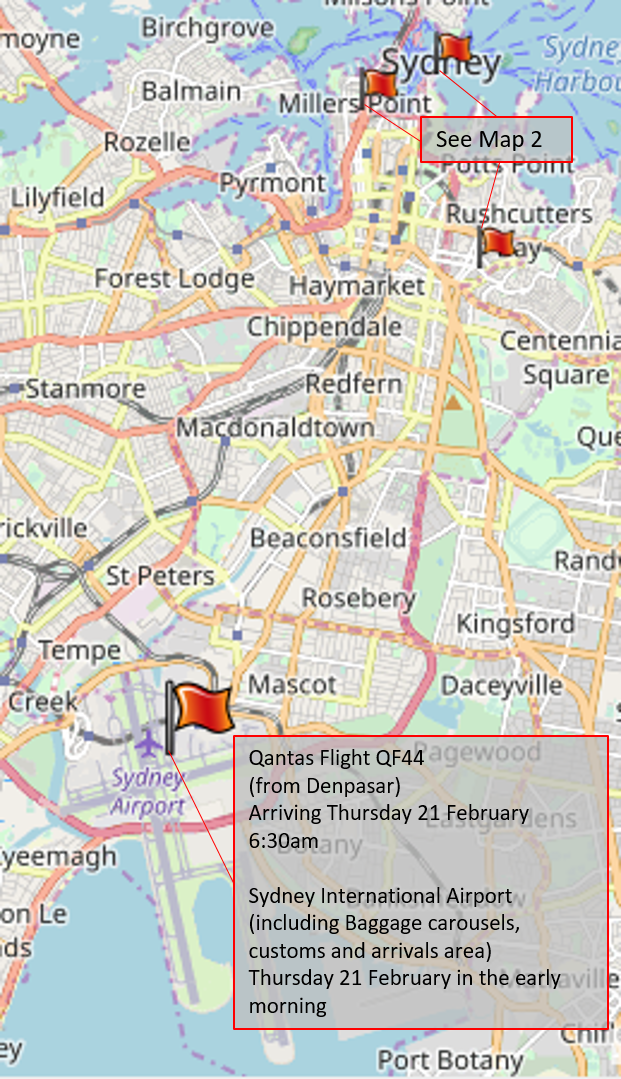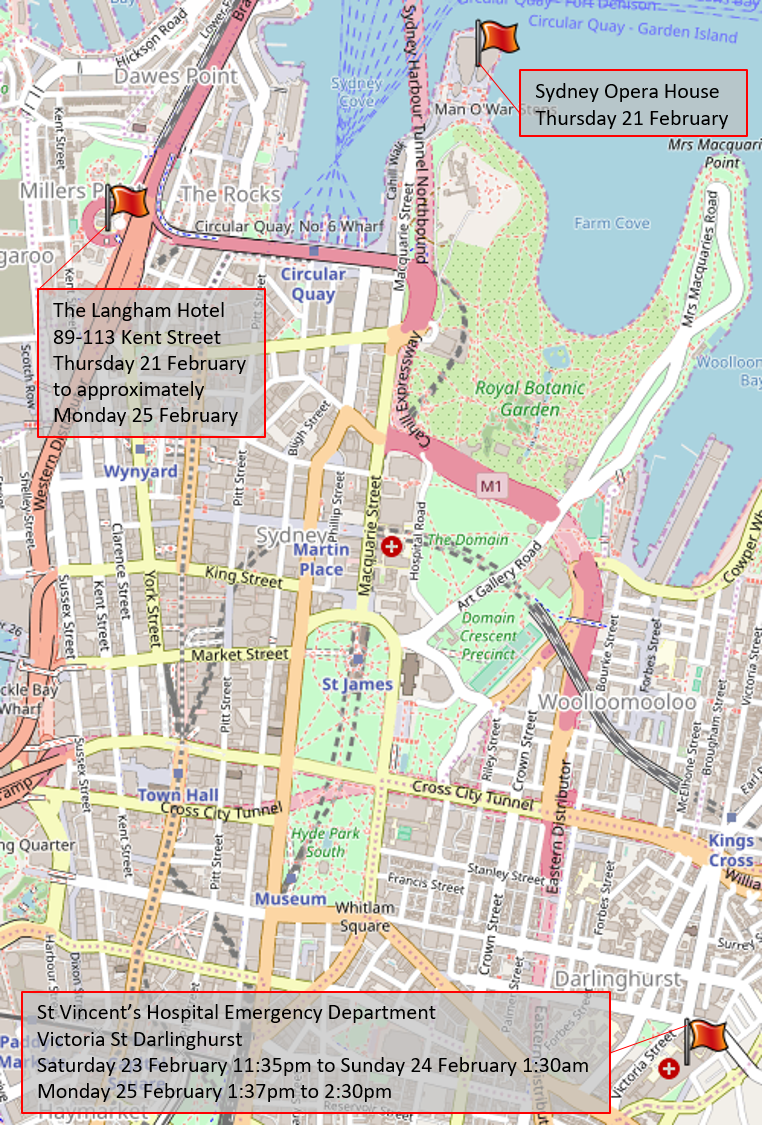This alert is no longer current
NSW Health has issued an alert for passengers on an international flight from Bali, and people at the International Airport, and several inner city sites between Thursday 21 and Monday 25 February, after a tourist was diagnosed with measles. Details of the second case mentioned in the alert can be found on the measles alert - Sydney North.
The young woman is an international resident, who travelled to Australia via Bali. She believes she had been vaccinated as a child in her home country, however it is unclear whether she would have received one or two doses of vaccine.
She has since left Australia, and it is believed she left Sydney prior to the diagnosis being given, however the local public health unit have managed to collect some information regarding her movements while infectious. Due to her illness, her movements were limited, but she is known to have attended St Vincent's Hospital Emergency Department on two separate occasions.
Specific details of times and dates of potential exposure are provided in the maps and table below.
People in the same locations at the same time as this woman should be alert for signs and symptoms of measles until 15 March, as it can take up to 18 days for symptoms to present after exposure to an infectious case.
Measles is a highly infectious viral illness which is spread through the air when an infected person coughs or sneezes. Symptoms include fever, cough, runny nose, or sore red eyes followed a few days later by a red, spotty, non-itchy rash which starts on the face and moves to the limbs and body. More information about measles can be found below or on the measles webpage.
Map 1: International Airport and Qantas flight QF44
Thursday 21 February 2019

Map 2: Circular Quay area and St Vincent's Hospital
Thursday 21 February - Monday 25 February 2019

Maps created using Esri (Sources: OpenStreetMap contributors, CC-BY-SA)
| Thursday 21 February 2019 |
Qantas Flight QF44 Denpasar to Sydney arriving Sydney International Airport 6:30am
Sydney Opera House, Circular Quay
The Langham Hotel, 89-113 Kent Street Sydney (until approximately Monday 25 February 2019) |
|---|
| Saturday 23 February to Sunday 24 February 2019 |
St Vincent's Emergency Department Victoria Rd Darlinghurst between 11:35pm Saturday and 1:30am Sunday |
|---|
| Sunday 25 February 2019 |
St Vincent's Emergency Department Victoria Rd Darlinghurst between 1:30pm and 2:30pm |
|---|
These sites do not pose an ongoing risk to the public.
About measles
Measles is a serious illness, and complications such as diarrhoea, middle ear infection and pneumonia occur in up to one third of cases. Measles encephalitis is swelling of the brain caused by the measles virus and occurs in up to one in 1000 cases. A fatal condition known as sub-acute sclerosing pan-encephalitis, occurs in one in 10000 cases and is a progressive neurological disorder which presents years after measles infection.
People are at risk of measles if they are exposed to an infectious case, and have never had measles, or have not received two doses of measles containing vaccine. Two doses of measles containing vaccine provide lifelong protection against infection in 99 per cent of vaccinated people. Most people born before 1966 are assumed to be immune to measles.
In Australia measles containing vaccine is given to children at 12 months of age as measles-mumps-rubella (MMR) vacine and 18 months of age as measles-mumps-rubella-varicella (MMRV) vaccine.
NSW Health encourages all people 12 months of age or older, and born during or after 1966 to make sure they have received two doses of measles vaccine. Measles vaccine is available for free from GPs in NSW for people who do not have evidence of measles immunity. For people who are unsure of whether they have previously received two doses, it is safe to receive more than two.
Travellers are encouraged to discuss their travel plans with their GP to ensure that they are protected against preventable diseases such as measles prior to travel. While measles is rare in Australia, it remains very common in many countries including most of southern and south east Asia, and large outbreaks are currently occurring in Europe, the United States, and parts of South America.
People travelling with children aged between 9 and 18 months should discuss travel plans with their doctor, as the first dose of the vaccine can be given as early as 9 months of age, if the child is travelling to an area where measles is common, or outbreaks are occurring.
People who are experiencing signs and symptoms of measles should seek medical attention. NSW Health recommends calling ahead to the practice or emergency department to alert of them of your symptoms so that measures can be taken to limit your exposure to others upon your arrival.
For more information download the  measles fact sheet, or visit Measles.
measles fact sheet, or visit Measles.